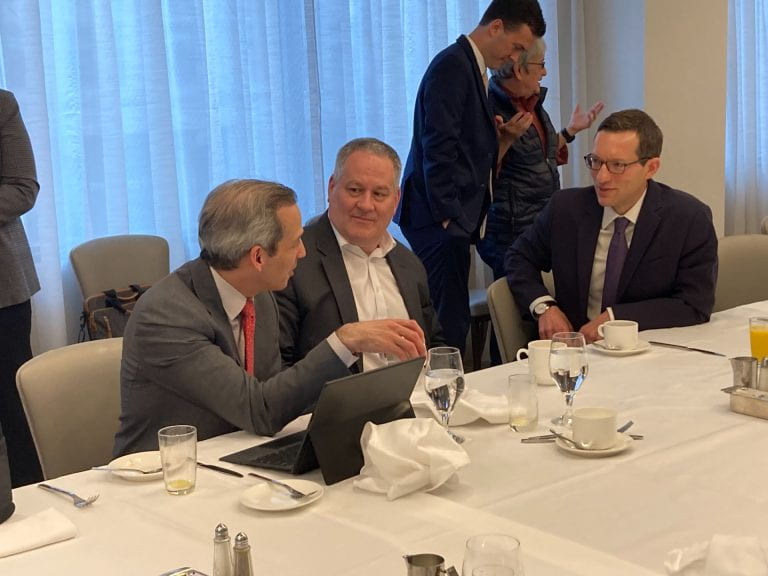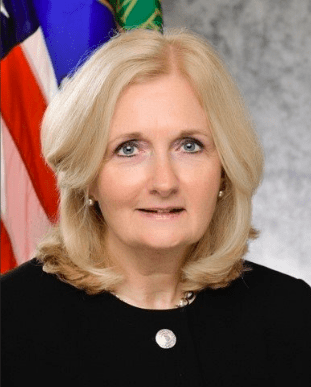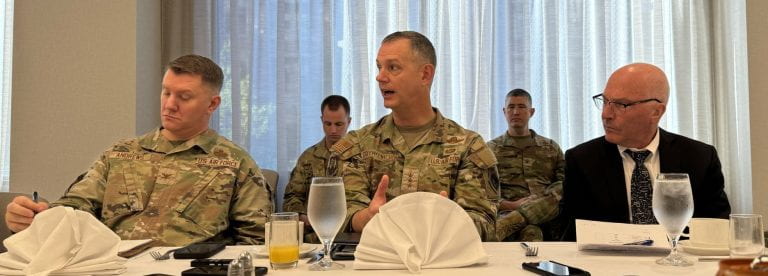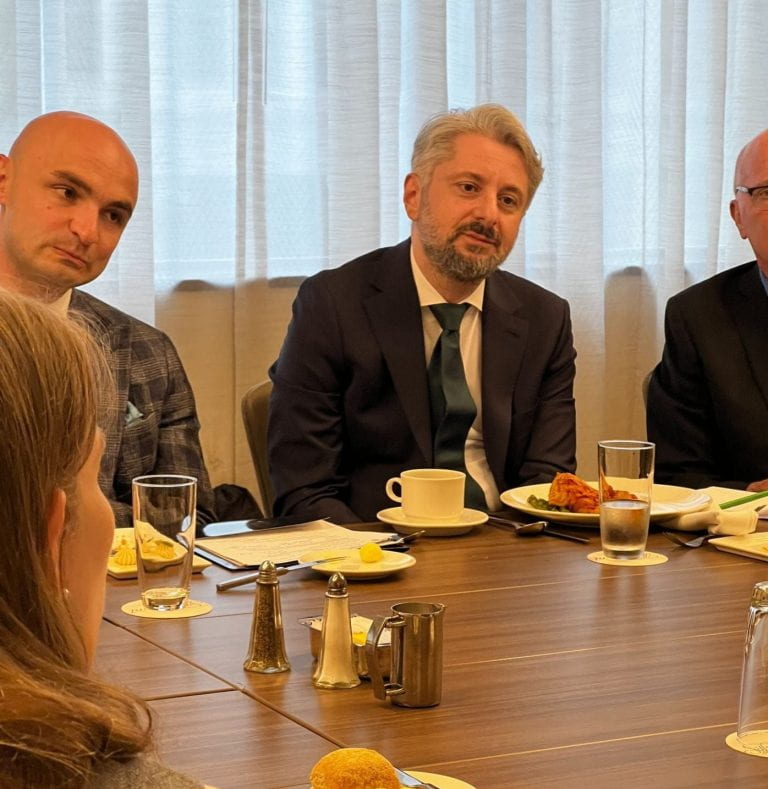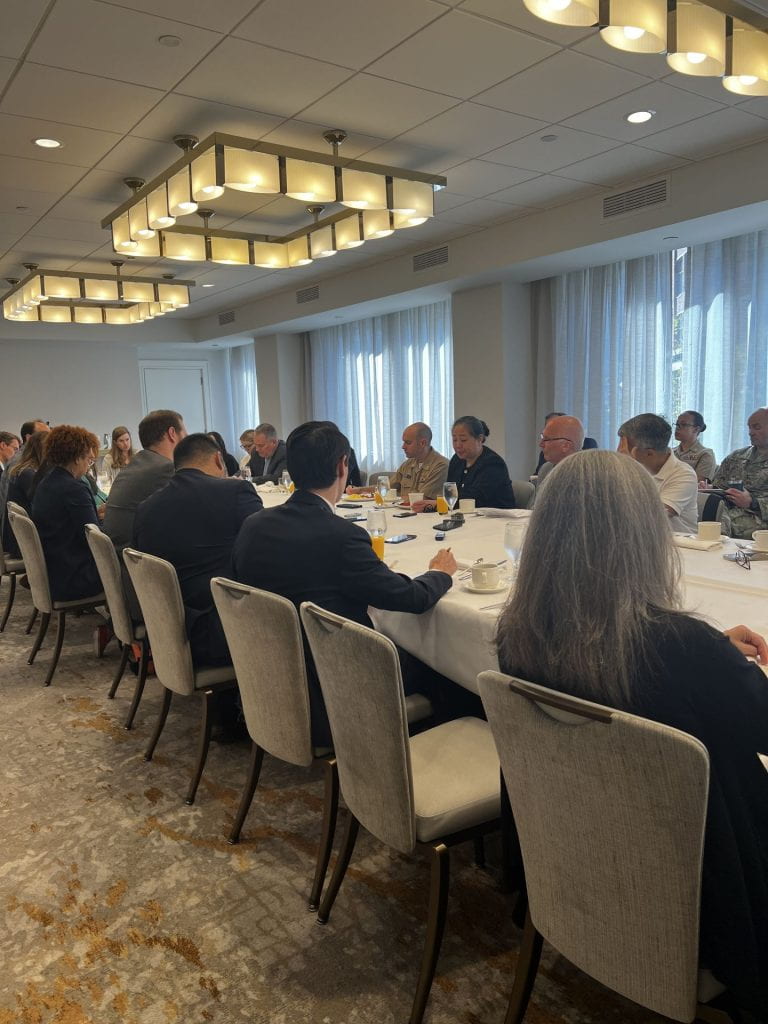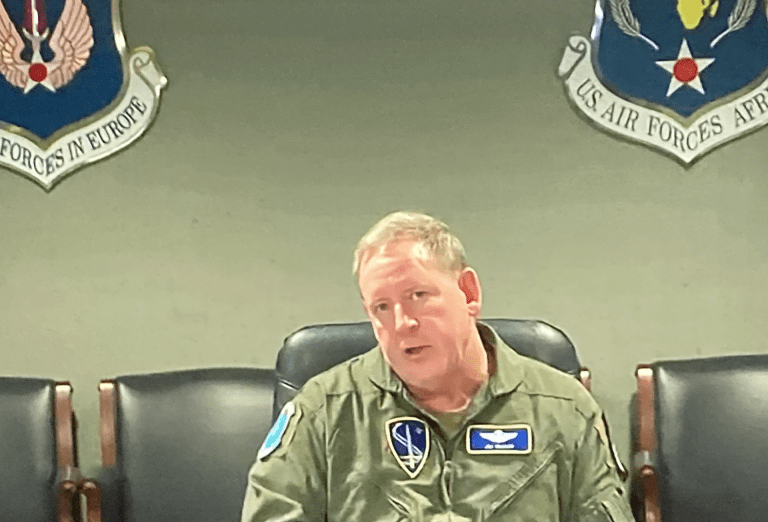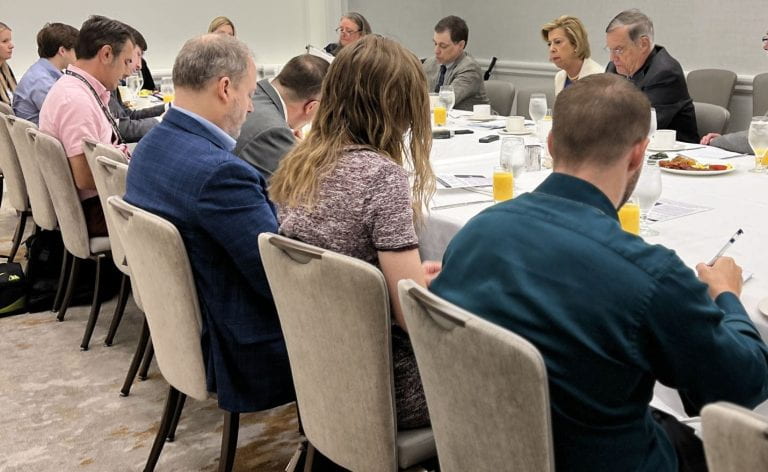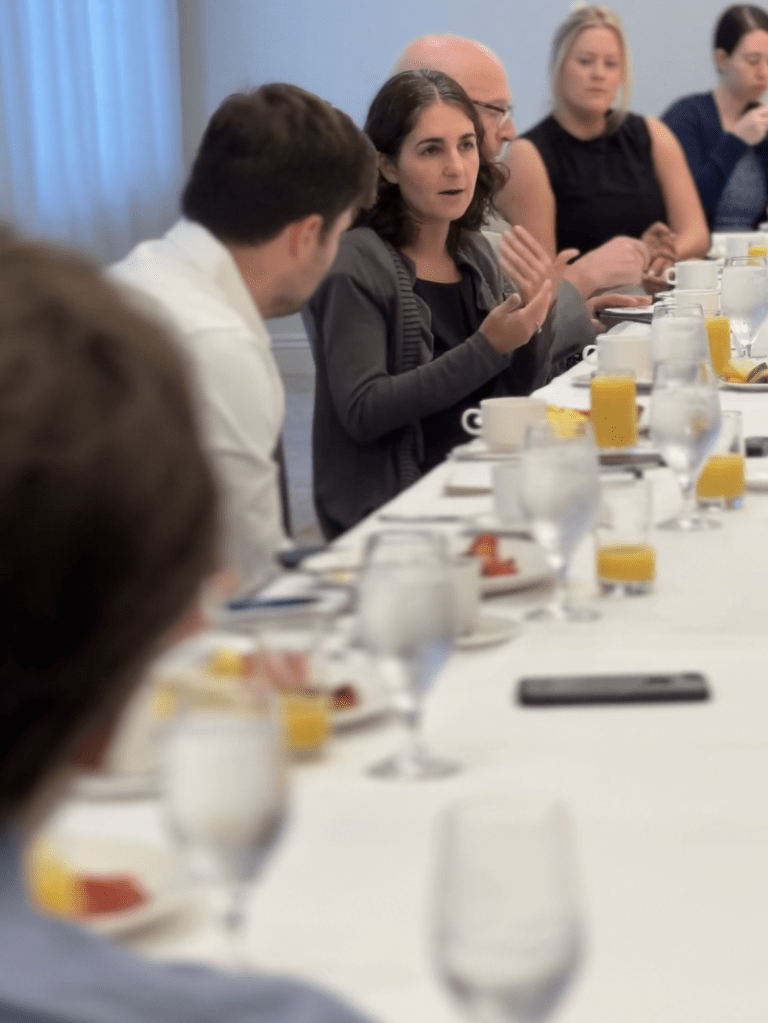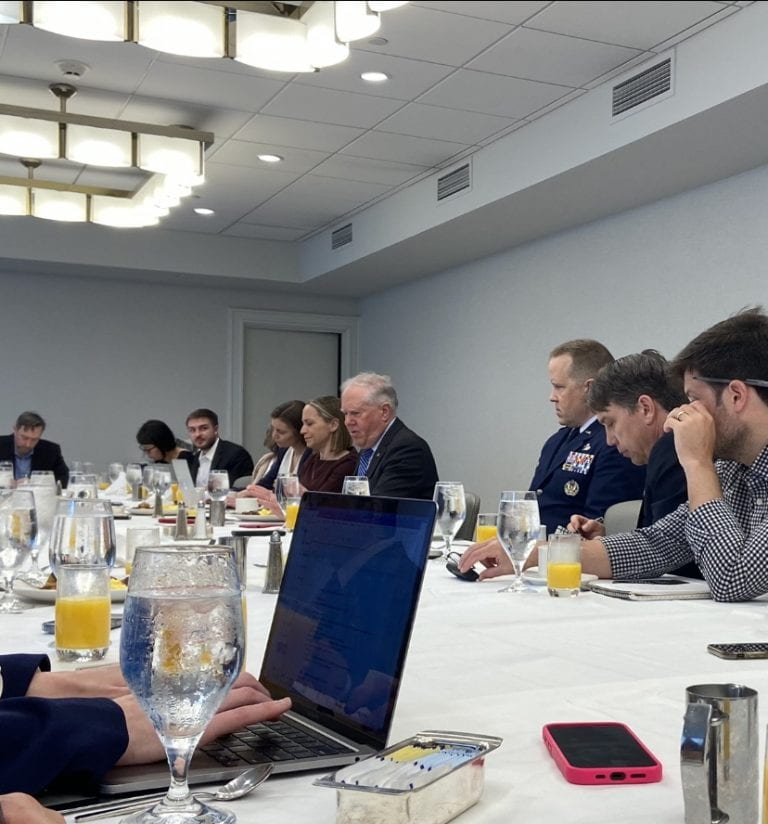Defense Writers Group
5 December 2023
Moderator: Good morning everybody. Thank you, and welcome to what I know is going to be a great Defense Writers Group discussion with Dr. Ely S. Ratner, Assistant Secretary of Defense for Indo-Pacific Security Affairs.
The ground rules, as always, this is on the record, but there is no reposting of audio or video. Feel free to record for accuracy and quotes, of course.
I’ll ask the first question then we’ll go around the table. I have a huge list of people who asked in advance. We’ll get through as many as possible before giving the final five minutes to Dr. Ratner.
Thank you for joining us today, sir.
My opening question. Exactly one year ago, December of ’22, you spoke to AEI, a great discussion there, and you said, and I quote, “In my view 2023 is likely to stand as the most transformative year in US force posture in the region in a generation.” A pretty dramatic quote.
So here we are, a year later, what’s your AAR? I know it’s slowly work in progress, but what progress has DoD made? What are the greatest challenges? And what’s on your to-do list? Help me understand the risks -- higher, lower, mitigated in the Indo-Pacific?
ASD Ratner: Thom, thanks so much for the opportunity here. You’ve just asked about eight really important questions that I could spend the entire time on, so let me take a swing at a couple of them, and then I really look forward to the discussion here with so many good friends.
Defense Writers Group
30 November 2023
Moderator: Let me get started to be respectful of everybody’s time today. The ground rules, as always, are this is on the record but there’s no rebroadcast of audio or video. Please feel free to record for accuracy and quotes. A couple of introductions. Evie Schumann is joining us today from Carnegie Corporation of New York. Our work would not be possible without their kind generosity, so thank you so much and the corporation. We have four or five GWU National Security grad students with us today. Welcome. Please join the conversation. We’re not only about elevating the discussion for these great reporters, but
the next generation of national security leaders too, so we’re really, really glad you’re here. Our speakers, of course, are from the Congressional Commission on the Strategic Posture of the United States.
Commission Member Rebecca Henrichs is to my right. She’s a senior fellow at Hudson Institute, and the director of its keystone defense initiative. She also serves on the US Strategic Command Advisory Group and the National Independent
Panel on Military Service and Readiness. She’s an adjunct professor at the Institute of World Politics. Rebecca, welcome.
Also here is Madelyn R. Creedon. She was the Commission Chair. She has served as Principal Deputy Administrator National Nuclear Security Administration, as an Assistant Secretary of Defense for Global Strategic Affairs. She also serves, as many of us know, as the long-time counsel for the Senate Committee on Armed Services.
I don’t want to embarrass Madelyn, but one quick story from my time as a journalist. My wife always cautions me, now dear, you only used to be Thom Shanker, so when I used to be Thom Shanker I emailed, called, left messages for Madelyn for years on end.
She never emailed or called me back. At the time it was so frustrating as a journalist, but as a recovering journalist I am in awe of your discipline and of your commitment to Senator Levin who was one of the truly great public servants. I’d watch Madelyn and Carl passing notes back and forth and was like I want to be in that conversation. Thank you both for being here. We are really honored. As always, I’ll ask the first question --
Ms. Creedon: I have to say, a note in my defense. When one works for Senator Levin the staff is seen but not heard. So...
Defense Writers Group
21 November 2023
Moderator: -- thank you for coming. The ground rules are the same as always. This is on the record but there’s no rebroadcast of audio or video. Please record for accuracy and quotes. I’ll ask the first question, we’ll go around the table. I already have many, many emails of people who want to ask questions. We’ll get to as many as we can. Owing to the state of the world, the Secretary has a hard stop at 9:45 that we will honor.
One of my last interviews with Secretary Bob Gates, he told me something very interesting he had learned about Pentagon management. He said across the DoD everybody can say no, but only two people can say yes -- the Secretary and the Deputy Secretary. Which means you have rather awesome power.
So my opening question, Madame Secretary, is how you're going to get to yes on two very important things. First, your signature Replicator program. No secret I’m a big fan of it and about it, but how do you get the services who traditionally love their old, big platforms to sign onto such a dramatic change as swarming drones?
And to expand it a little bit, it’s no secret that the current dynamics in DC are not exactly this side of paralysis. The CR, the leadership problems, all of that. How will you get to yes on so many of your important initiatives when Congress is in such disarray?
DSD Hicks: First of all, thank you, Thom.
Defense Writers Group
4 October 2023
Moderator: Good morning, everybody, and welcome everyone to this Defense Writers Group with Lt. General Alexus G. Grynkewich, as you know, of course, Commander of Air Forces US Central Command.
The ground rules as always, this is on the record,. Please feel free to record for accuracy but there’s no rebroadcast of audio or video today.
The General brings the furthest distance traveled to the DWG award this year, so rather than my opening question I’m going to ask him to kind of set the scene, some shaping thoughts, then we’ll go around the table for questions. Ten of you emailed in advance, we’ll do that list first, then given time, whoever’s left.
So General, we are honored to have you. Thank you for being here. The floor is yours.
Lt. Gen. Grynkewich: Great, thanks Thom, and thanks everyone for being here this morning. I’ll be brief in my opening comments so we can get the conversation where you all want to take it. Just a couple of things.
Project for Media and National Security
George Washington School of Media and Public Affairs
3 October 2023
Mr. Gvaramia: Thank you very much for having me here. Thank you very much for the invitation and the interest that you have towards Georgia.
First of all my country, my homeland. Which I don’t think that it’s an irregular situation and there is no similarities and serious problems in my country. Thank you for supporting me personally. And thank you for here people who actually tremendously affected the decision of the Georgian President pardoning me.
Defense Writers Group
15 September 2023
Moderator: Welcome to this Defense Writers Group with Mieke Eoyang, the Deputy Assistant Secretary of Defense for Cyber Policy. As I told her in the elevator on the way up, now that I’m no longer a Times reporter and am allowed opinions, I think the work that DASD Eoyang is doing is incredibly important and I’ve found her to be a forceful and intelligent advocate of her issues. And every time I talk to her, I get smarter so I hope that you all are here to do the same thing.
I’ll ask the first question, then we’ll go around the table for others. Eight of you emailed in advance. We’ll do those first. Then whatever time is left at the end we’ll go to others.
My opening question is somewhat general but very important. You and I have talked before about the importance of definitions. Cyber weapon, cyber tool; cyber war, cyber what.
Could you walk us through the most significant changes between the earlier Cyber Policy and the one that you released? I see major shifts in offense and defense and STRATCOM and all that, but rather than me try to be a Talmudic scholar and interpret it, I’d love to have you do that for us.
DASD Eoyang: I really appreciate the question because I think there are a lot of folks who are wondering why did we do an
update 2023 strategy off of the 2018 strategy. In many ways, the 2023 strategy does represent some continuity with the 2018 strategy, but given that we have a National Security Strategy, a National Defense Strategy, and a National Cyber Strategy, there was a framework of strategic guidance into which we needed to think about how do we bring cyber to bear across all of those things.
Defense Writers Group
18 August 2023
Moderator: General Hecker, we are honored by your time. Thank you so much for doing this, sir.
General Hecker: Thank you, Thom, for the opportunity to be here. I really appreciate it.
DWG: Great.
When you were sworn in as Commander of US Air Forces Europe and Africa the world was three months into the war in Ukraine, an invasion that really changed the shape of Europe and what we think about security on the continent. There’s new instability in Africa, another hat that you wear. So I’m curious, can you tell us how you’ve reshaped your forces since then? How has your thinking and planning altered to meet this new age of danger?
General Hecker: Thanks for the question. It’s hard to believe that it’s been a year and two months since I took command, and it’s hard to believe that the Ukraine has been going on for a year and a half now. But it has. But that has given us the opportunity to take a look and learn some lessons from what’s gone on in the last year and a half. And I think by far the largest lesson that we’ve learned is that neither side was able to get air superiority.
Defense Writers Group
16 August 2023
Moderator: Welcome to this Defense Writers Group session, really one of our more unusual and therefore important. We’re convening today to chat with Bob Hale, the Chair, and Ellen Lord, the Vice-Chair, of the Congressional Commission on Planning, Programming, Budgeting and Execution Reform. I hope the meaning of execution is not the one where I end up hanging --
Mr. Hale: I can tell you’re all excited already.
Moderator: It really is an important topic. I do a lot of public speaking and people say well what are the greatest threats to our national security? You can talk about China and climate and Russia and all that, but if our systems are broken, if we’re polarized, we’re not efficient in building the national security machine, then we are really, really in trouble.
As always, today’s session is on the record but there’s no rebroadcast of audio or video. I’ll ask the opening question and we’ll go around the table. Any of you who emailed in advance are on the list. We’ll get to as many as there is time, and then we’ll reserve the last few minutes for Mr. Hale and Ms. Lord for closing comments.
To get started, I did stay up late last night reading your -- [Laughter] -- report.
Mr. Hale: Glad to hear it.
Moderator: I didn’t read it thoroughly, but I did read it. But I did want to use this opening question to ask you to describe to us from the interim report and all that’s there, what do the two of you see as the major takeaways and the major priorities?
Mr. Hale: Let me start and then I’ll turn to Ellen, of course.
Defense Writers Group
1 August 2023
Moderator: “Dr. Karlin is performing the duties of Deputy Under Secretary of Defense for Policy, serving as the primary assistant to the Acting Under Secretary of Defense for Policy, serving as the primary assistant to the Acting Under Secretary of Defense for Policy and formulating, coordinating and integrating national security policy and plans with the Department of Defense.” and formulating, coordinating and integrating national security policy and plans with the Department of Defense.” Which basically translates to one of the smartest people in the room wherever she goes. So Dr. Karlin, thank you so much.
Karlin: Thank you. It’s such a treat to be here.
Defense Writers Group
22 May 2023
Secretary Kendall: -- the criminal prosecution obviously, and there’s also my IG and others are looking into the situation. And the whole department is taking -- the whole Department of Defense, not just Department of the Air Force, I hate to call this an opportunity, but we’re using this vehicle, the fact of this case as a way to stimulate a lot of activity.

